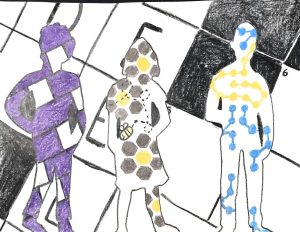Voters Reject Extreme Candidates in the 2022 Midterms
January 16, 2023
The 2022 midterm elections were predicted to be a red wave by polls and political experts. The party in the White House historically suffers large losses in midterm elections with only a few exceptions since World War II. Contrary to predictions, however, 2022 has become another exception as the forecasted red wave did not materialize.
Although Republicans did win the House, they secured a razor-thin majority with many key races won by less than a point, indicating how close the House truly was. On the Senate level, Democrats managed to retain and expand their majority despite being projected to lose many key Senate races. In statewide races too, Republicans largely disappointed themselves, losing Secretary of State, Attorney General, and gubernatorial races by large margins in many battlegrounds like Michigan, Arizona, Wisconsin, and Pennsylvania.
The answer to these surprise results is simple: a rejection of the polarization that has come to dominate American politics. Many of the candidates who lost elections or underperformed despite winning denied the legitimacy of the 2020 presidential election and cast doubt on election security. In August of this year, Senate minority leader Mitch McConnell warned Republicans of this problem saying that “Candidate quality has a lot to do with the outcome [of these senate races],” according to CNN News.
This year’s Pennsylvanian race for governor exemplified this trend. Republicans at first saw Pennsylvania as an excellent opportunity to flip a governorship. Term limits prevented the incumbent Democrat from running for re-election and the state is extremely competitive, swinging for President Joe Biden by only 1.2 points in 2020. Republican hopes for flipping Pennsylvania plummeted when they nominated far-right State Senator Doug Mastriano. Mastriano, an election denier who was at the Capitol on January 6th, spent his campaign banning journalists from entering his rallies, and making antisemitic comments about his Democratic opponent Josh Shapiro. Mastriano would then go on to lose the general election to Shapiro by a landslide margin of 15 points as voters seemed to reject the extremism that Mastriano stood for.
Similarly, in Colorado’s 3rd Congressional District, Republican Lauren Boebert ran for re-election. Boebert had built a national profile as a far-right firebrand who garnered controversy for heckling President Joe Biden at his State of the Union Address and making racist remarks about Democratic members of Congress. As Lauren Boebert’s district is considered solidly Republican, since Donald Trump won by 10 points in 2020, all major prediction websites anticipated Boebert to easily win re-election. This ultimately did not come to fruition. While Lauren Boebert did win in the end, she would do so by a slim margin of fewer than 600 votes over her Democratic challenger Adam Frisch, making this the closest race of the 2022 House cycle. Perhaps, many voters in this district grew sick of Lauren Boebert’s extremist profile, and a large swath of voters who voted for Donald Trump did not vote for Lauren Boebert.
Colorado’s 3rd District was not an outlier. Democrats in political upsets flipped Washington’s 3rd Congressional District and North Carolina’s 13th Congressional District where both races had far-right Republicans, further proving this trend of voters opposing extremism.
Many Cambridge students were surprised by these results. “I expected Republicans to do much better this year,” said Cameron Tarte ’25 to the Register Forum. “But ultimately that did not happen.”
Many Democrats are celebrating these results as a victory for democracy. “The results of these midterms show that Americans believe in democracy,” said Senate majority leader Chuck Schumer, going on to say that Americans had rejected extremism, as reported in NBC News.
While what this means for the future of election-denying candidates remains unclear heading into another presidential election season, so-called candidate quality played a key role in the 2022 midterms, as voters rejected polarization and far-right Republicans, and the predicted red wave did not come to be.










